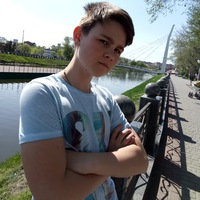
Почему Александр II Стал жертвой народной воли?
 0
0
 0
0
Ответы на вопрос
 Внимание! Ответы на вопросы дают живые люди. Они могут содержать ошибочную информацию, заблуждения, а также ответы могут быть сгенерированы нейросетями. Будьте внимательны. Если вы уверены, что ответ неверный, нажмите кнопку "Пожаловаться" под ответом.
Внимание! Ответы на вопросы дают живые люди. Они могут содержать ошибочную информацию, заблуждения, а также ответы могут быть сгенерированы нейросетями. Будьте внимательны. Если вы уверены, что ответ неверный, нажмите кнопку "Пожаловаться" под ответом.

Ответ:
Убийство российского императора Александра II произошло 1 (13) марта 1881 года. Александр II был убит в результате нападения, осуществлённого несколькими членами организации «Народная воля» в Санкт-Петербурге на набережной Екатерининского канала с помощью самодельных метательных снарядов. Террористы надеялись, что убийство царя вызовет революцию и приведёт к социальным преобразованиям
Объяснение:
Ну так
 0
0
 0
0

Ответ:
Убийство российского императора Александра II произошло 1 (13) марта 1881 года. Александр II был убит в результате нападения, осуществлённого несколькими членами террористической организации «Народная воля» в Санкт-Петербурге на набережной Екатерининского канала с помощью самодельных метательных снарядов. Народники надеялись, что убийство царя вызовет революцию и приведёт к социальным преобразованиям
 0
0
 0
0

Background on Alexander II and the People's Will
Alexander II, also known as Alexander the Liberator, was the Emperor of Russia from 1855 until his assassination in 1881. He is known for his significant reforms, including the emancipation of the serfs in 1861. However, despite his efforts to modernize Russia, Alexander II faced opposition from various groups, including the revolutionary organization known as the People's Will.
The People's Will was a radical group that emerged in the 1870s. They aimed to overthrow the autocratic regime and establish a democratic system in Russia. The group believed in using violence and terrorism as a means to achieve their goals. They targeted high-ranking officials and members of the ruling elite, including the Emperor himself.
Reasons for Alexander II Becoming a Target
There were several reasons why Alexander II became a target of the People's Will:
1. Repression and Suppression of Opposition: Despite Alexander II's reforms, his regime still maintained a repressive and authoritarian system. The government cracked down on political dissent and suppressed revolutionary movements. This repression fueled the anger and radicalization of groups like the People's Will, who saw violence as the only means to bring about change.
2. Failed Reforms and Disillusionment: While Alexander II implemented significant reforms, many of them fell short of the expectations of the reformers. The emancipation of the serfs, for example, did not lead to significant improvements in their living conditions. This disillusionment with the limited impact of reforms contributed to the radicalization of groups like the People's Will.
3. Lack of Political Freedoms: Despite some reforms, Russia remained an autocratic state with limited political freedoms. The absence of a representative government and the concentration of power in the hands of the Emperor and his close advisors fueled discontent among those seeking democratic reforms. The People's Will saw the assassination of Alexander II as a way to destabilize the autocratic regime and pave the way for a more democratic system.
The Assassination of Alexander II
On March 1, 1881, Alexander II was assassinated in St. Petersburg by members of the People's Will. The assassination was carried out using a bomb thrown at the Emperor's carriage. Although the initial attack did not kill Alexander II, he was fatally wounded and died a few hours later.
The assassination of Alexander II was a significant event in Russian history. It highlighted the growing radicalization and dissatisfaction with the autocratic regime. The People's Will hoped that by eliminating the Emperor, they could spark a revolution and bring about the changes they desired. However, their actions ultimately led to a crackdown on revolutionary movements and a period of increased repression under Alexander III.
Conclusion
Alexander II became a target of the People's Will due to a combination of repression, failed reforms, and the lack of political freedoms in Russia. The assassination of Alexander II by the People's Will was a tragic event that had far-reaching consequences for Russian history. It marked a turning point in the struggle between revolutionary movements and the autocratic regime, leading to increased repression in the years that followed.
 0
0
 0
0
Похожие вопросы
Топ вопросов за вчера в категории История
Последние заданные вопросы в категории История
-
Математика
-
Литература
-
Алгебра
-
Русский язык
-
Геометрия
-
Английский язык
-
Химия
-
Физика
-
Биология
-
Другие предметы
-
История
-
Обществознание
-
Окружающий мир
-
География
-
Українська мова
-
Информатика
-
Українська література
-
Қазақ тiлi
-
Экономика
-
Музыка
-
Право
-
Беларуская мова
-
Французский язык
-
Немецкий язык
-
МХК
-
ОБЖ
-
Психология
-
Физкультура и спорт
-
Астрономия
-
Кыргыз тили
-
Оʻzbek tili






















